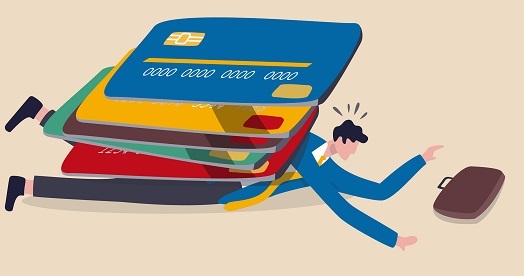
 Data Structure
Data Structure Networking
Networking RDBMS
RDBMS Operating System
Operating System Java
Java MS Excel
MS Excel iOS
iOS HTML
HTML CSS
CSS Android
Android Python
Python C Programming
C Programming C++
C++ C#
C# MongoDB
MongoDB MySQL
MySQL Javascript
Javascript PHP
PHP
- Selected Reading
- UPSC IAS Exams Notes
- Developer's Best Practices
- Questions and Answers
- Effective Resume Writing
- HR Interview Questions
- Computer Glossary
- Who is Who
Fiscal Consolidation
Introduction
If the government spends more than the available funds in the account, it goes into fiscal deficit. The respective government determines the total outlay at the end of the financial year. Fiscal deficit can be computed by subtracting total revenue from total expenditure.

Fig 1: Government spending on multiple categories
This value throws a light on government spending and projects the financial health of the economy on a whole. Situations like these occur due to high unemployment, uncollected loans lend to business at the time of financial crunch, recession, global market crash, etc.
Define Fiscal Consolidation
Fiscal consolidation refers to a strategic approach to reduce growing fiscal deficits and debt of the government. The main aim of this actionable plan is to enhance the financial condition and direct the funds to useful areas for development.
If the economy is driving towards growth, the government gets more funds in the form of taxes, which will be again used for boosting the overall economy. The financial consolidation depends on multiple factors like public debt, performance of the economy, political aspects, trends in the interest rates, debt financing, and others.
All the guidelines are drafted under the Fiscal Responsibility and Budget Management Act, and the government has to follow them to meet the desired financial goals.
Evolution of Fiscal Consolidation policy in India
Fiscal consolidation draws a big picture of government spending and financial aspects of the country. The idea is to improve the total revenue and creates wiser spending tactics for the government. The establishment of the fiscal consolidation policy was a gradual process in the Indian economy. These are the growing phases ?
The benefits gained from Indian economic reforms in the early 1990s couldn't be retained for long.
Around 2000, the overall budget deficit (of the centre and the states) nearly surpassed 1991 levels when India suffered a huge financial crisis.
Debt management was also becoming a serious concern. The Government of India, headed by Atal Bihari Vajpayee, proposed the Fiscal Responsibility and Budget Management (FRBM) Bill in Parliament in December 2000, believing that institutional assistance in the form of fiscal regulations would help set the goals for eventual fiscal consolidation.
Following this bill, the Indian government took several measures and changed taxation policies. It greatly helped the government to recover the financial debt during the early 2000s.
Significance of Fiscal Consolidation
Certain measures and policies taken by the government of India for fiscal consolidation are significant, which include ?
Efficiency of Tax Administration ? The government aims to improve the efficiency of administering taxation in the country. The policies plan to do so by eliminating tax evasion, increase in tax compliance, and reducing tax avoidance by people.

Fig 2: Fiscal consolidation helps government to fall out of debt
Recovering the Fiscal Deficit ? Debt is one obligation that is not feasible to put off, and the government ultimately struggles to find extra resources for capital expenses and revenue expenditures. Uncontrolled budget deficits will harm economic growth in the long run.
Boost in GDP Tax Ratio ? Tax revenues are increased through expanding the tax base, reducing tax breaks and exemptions, and increasing the tax-to-GDP ratio.
Fiscal Responsibility and Budget Management (FRBM) Act
The Fiscal Responsibility and Budget Management Act (FRBM), 2003, establishes a structure for fiscal management and responsibility. Here are the major objectives and features of the FRBM Act ?
Objectives and features
Implementation of a transparent fiscal management system throughout the nation.
Ensuring equal debt distribution throughout the years.
Creates necessary flexibility for handling inflation in the Indian economy.
Urges the government to be transparent in case of any modifications made in the policy, framework, accounting standards, etc.
This bill also provides an exceptional provision that lets the government split from planned budgetary objectives in the case of certain unplanned situations, such as political instability or natural disasters.
Tools of Fiscal Consolidation
The term' fiscal' applies to the budget of the national government. Thus, fiscal policy refers to government expenditure, taxes, and transfer to impact collective demand and, as an outcome, real GDP. Given below are the three main fiscal consolidation tools ?
Government Spending ? Government expenditure can influence economic growth. Also known as Government Final Consumption Expenditure, it covers purchasing goods and services for the sake of the population.
Transfer Payments ? Government payments made to individuals through welfare programs, student grants, and social security are called transfer payments. Transfer payments and spending on social assistance are cut when fiscal consolidation begins.
Taxes ? Tax changes affect your income, and changes in consumption lead to changes in real GDP. As a result, states can influence economic performance by changing taxation.
Recommendations of the 15th Finance Commission
The Finance Commission (FC) is a legal body that authorises the methods and formulas for distributing tax revenues between the Center and the provinces and between provinces in unison with constitutional rules and current demands.

Fig 3: Reduce borrowings and fiscal deficit
The FC recommends that ?
The Union Government must aim to reduce the fiscal deficit from 4% of the GDP by 2025-26. It has plunged to 6.8% in FY22.
The fiscal deficits in state governments must be reduced to 3.5 and later 3% following FY22.
State credit limits should be set at 4% of GDP in 2021-22, 3.5% in 2022-23, and 3% in 2023-24 to 2025-26.
If the government creates conditions for energy sector reform, it should allow an additional borrowing of 0.5% of the GSDP.
According to the law, a third party must check all centrally funded initiatives within a specified time.
Conclusion
Fiscal consolidation is an extremely important component for the government to maintain the country's economic growth while continuing government spending. As a result of fiscal consolidation, the fiscal deficit in the government is reduced, owing to the consolidation policies.
FAQs
Q1. How does Fiscal consolidation affect the economy?
Ans. Fiscal consolidation aids the government in bridging the deficit gaps in the economy by borrowing the expenses required. It helps in the smooth functioning of the economy.
Q2. Why is Fiscal Consolidation important?
Ans. For a country, the release of consolidation plans is mandatory to restore public capital and manage market morale. It aims to reduce government dues and debt build-up.
Q3. What are the Fiscal Consolidation measures taken by the government?
Ans. Fiscal consolidation measures taken by the government include reducing the budget deficit to less than 3.5% of GDP and maintaining the debt-to-GDP ratio at 60%.

